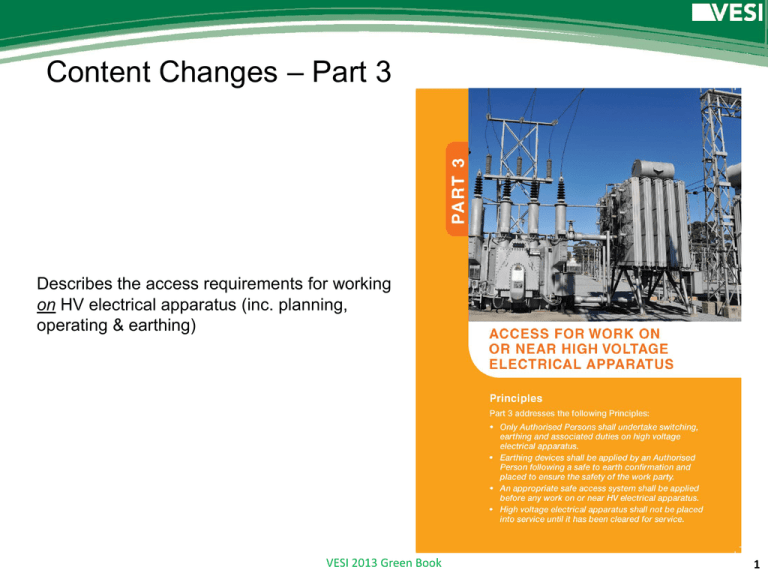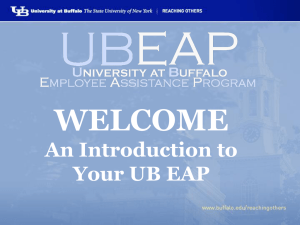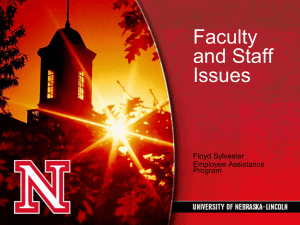2013 Green Book - Parts 3, 4 and 5
advertisement

Content Changes – Part 3 Describes the access requirements for working on HV electrical apparatus (inc. planning, operating & earthing) VESI 2013 Green Book 1 Content Changes – Part 3 2006 Green Book 2013 Green Book 7.1 Persons Authorised to Operate HV Electrical Apparatus 3.1.1 Persons Authorised to Operate HV Electrical Apparatus • Paragraph 1 split into 2 paragraphs and dot points changed to capture training: 3.1.1 Persons Authorised to Operate HV Electrical Apparatus – Switching and associated duties on HV Electrical Apparatus should be performed by Authorised Electrical Operators and Network Controllers whose training, duties and instructions cover the particular Electrical Apparatus. – However, any person may perform operations in the following circumstances: • When specifically Instructed by, or Authorised by, the appropriate Operating Authority. • When specifically Instructed by an Authorised operator or Network Controller as part of training. • In an emergency involving serious risk to persons or property. 34 VESI 2013 Green Book 2 Content Changes – Part 3 (cont.) 2006 Green Book 2013 Green Book 7.3 HV Switching 3.1.3 HV Switching • New third paragraph to enhance understanding of verbal instructions and changes to operating instructions: – Changes to operating instructions and all other statements including verbal instructions, shall be confirmed by repeating back to avoid misunderstanding. • Minor change to last paragraph to limit tagging – Any in service HV Electrical Apparatus found to be defective shall have a cautionary tag attached…. • New Table 8 formatted to new style but no change to content 34 35 VESI 2013 Green Book 3 Content Changes – Part 3 (cont.) 2006 Green Book 2013 Green Book 8.1 Earthing Safety Procedures - General 3.2.1 Earthing of HV Apparatus - General • Minor change to opening paragraph to highlight that earth types shall be approved: – Earthing device types shall be approved. Only Authorised persons shall apply them after…. • Minor change to second dot point after paragraph 3 – Another earth shall be held in contact with the conductor using an approved device while the hand applied earth is being attached or removed. • Existing clause 8.1 split after paragraph 5 to separate Operational and Work Site Earths 36 VESI 2013 Green Book 4 Content Changes – Part 3 (cont.) 2006 Green Book 2013 Green Book 8.1 Earthing Safety Procedures - General 3.2.2 Operational Earths • New Clause 3.2.2 3.2.2 Operational Earths – Other than in accordance with Clause 3.2.5, when earthing electrical apparatus for access, the first earth applied shall be an operational earth. Additional operational earths may be applied under instruction from the Operating Authority. – Operational earth/s shall be applied by an Authorised Electrical Operator or a suitably trained person under the direction of an Authorised Electrical Operator. – Other than in accordance with Clause 3.2.5, operational earth/s shall be applied prior to the issue of an Access Authority and shall remain effective during the currency of the work. – All operational earths shall be listed on the EAP and shall be under the control of the Operating Authority. Operational earths shall not be removed from electrical apparatus under EAP without permission from the Operating Authority. – Any operational earth may also act as worksite earth if it is attached within sight of the work party. 36 37 VESI 2013 Green Book 5 Content Changes – Part 3 (cont.) 2006 Green Book 2013 Green Book 8.1 Earthing Safety Procedures - General 3.2.3 Work Site Earths • New Clause 3.2.3 3.2.3 Work Site Earths – After access has been given to HV Electrical Apparatus, work site earths shall be applied as necessary to maintain the safety of the work party and to visually indicate the Dead condition of the Electrical Apparatus – Worksite earths should be applied within the accessed area in the order of preference set out in Clause 3.2.6.1. – Earths applied by the work party are defined as worksite earths under the control of the work party. They shall be attached and removed by appropriately trained persons. – Any operational earth may also act as worksite earth if it is attached within sight of the work party. 37 VESI 2013 Green Book 6 Content Changes – Part 3 (cont.) 2006 Green Book 2013 Green Book 8.2 Earthing for Access to HV Apparatus NA • This Clause deleted and now included in new Clause 3.2.2 Operational Earths NA VESI 2013 Green Book 7 Content Changes – Part 3 (cont.) 2006 Green Book 2013 Green Book 9.2.8 Absence of an Earth on HV under EAP 3.2.4 Absence of an Earth on HV under EAP • This Clause moved from 9.2.8 in 2006 GB so as to be in logical sequence for access to electrical apparatus 3.2.4 Absence of an Earth on HV Electrical Apparatus under EAP – Wherever practicable Electrical Apparatus shall be Earthed before the issue of an Electrical Access Permit. – Where an earth has not been applied to Electrical Apparatus prior to the issue of an Electrical Access Permit, the Recipient in Charge shall arrange for discharging and/or earthing of the Electrical Apparatus before any Recipient touches the HV conductors. 37 VESI 2013 Green Book 8 Content Changes – Part 3 (cont.) 2006 Green Book 2013 Green Book 8.3 Removal of an Earth When Working under an EAP 3.2.5 Removal of Operational Earth/s When Working under an EAP • Title change to cover only Operational earths • Changes to the dot point provisions for their removal: – The Operating Authority is consulted and confirms that the removal of the earth will not affect any other Access Authorities on issue – All persons likely to be affected by the removal of the earth are notified. – Consideration is given to induced voltages. 37 38 VESI 2013 Green Book 9 Content Changes – Part 3 (cont.) 2006 Green Book 2013 Green Book 8.4 Earthing of OH Lines 8.7 Earthing of OH Lines Priority System 3.2.6 Earthing of OH Lines and the Priority Earthing System • Clauses 8.4 and 8.7 combined as a common subject • Earthing of OH lines unchanged other than the addition of the following 2 paragraphs: – In situations where there is the risk of a worker becoming subject to different potentials across or between different earths, the hazard may be reduced by the application of equipotential work zone principles . – Where work under an Electrical Access Permit involves the connection, cutting or disconnection of conductors, then where practicable, approved bridging leads shall be applied across the proposed conductor break, or earths shall be applied to both sides of (and as close as practicable to) the proposed break and connected to a common earth. 38 VESI 2013 Green Book 10 Content Changes – Part 3 (cont.) 2006 Green Book 2013 Green Book 8.4 Earthing of OH Lines 8.7 Earthing of OH Lines Priority System 3.2.6.1 Priority Earthing Preferences • Clauses 8.4 and 8.7 combined as common subject • Priority Earthing System re-written as follows: 3.2.6.1 Priority earthing preferences – The choice of connection for a portable Earthing Device should where practicable be made on the basis of the following order of preference and shall be applied as closely as possible to the work site: 1. The neutral conductor of a Common Multiple Earthed Neutral (CMEN) System (not to be confused with a Multiple Earthed Neutral (MEN) System). 2. Permanently installed earthing system. 3. Earthing ferrule in a concrete pole. 4. The ground rod of an installed pole stay or permanently driven pole stakes. 5. A temporarily driven spike. 38 VESI 2013 Green Book 11 Content Changes – Part 3 (cont.) 2006 Green Book 2013 Green Book Various 3.2.7 Hazard Management when Earthing • This new clause combines the following clauses from the 2006 GB as a common subject: – – – – 39 8.4 Earthing of Overhead Lines 8.5 HV Metal Clad Switch Units 8.6 HV Capacitors 8.8 Precautions Prior to Work on Aerial Supervisory Cable VESI 2013 Green Book 12 Content Changes – Part 3 (cont.) 2006 Green Book 2013 Green Book 8.9 Operator Protection NA • Deleted as already addressed in new Clause 3.1.3 NA VESI 2013 Green Book 13 Content Changes – Part 3 (cont.) 2006 Green Book 2013 Green Book 9.1 Access for Work on or Near HV Electrical Apparatus - General 3.3.1 Access Procedures for HV Electrical Apparatus - General • Existing dot point 5 deleted as the DB’s have indicated that clamp-on fuse links are no longer used • Existing dot point 9 changed as follows: – The person is working in accordance with the SAD and work in the vicinity of electrical apparatus requirements of Part 2. 40 VESI 2013 Green Book 14 Content Changes – Part 3 (cont.) 2006 Green Book 2013 Green Book 9.2 Electrical Access Permit Procedure 3.3.2 Planning Considerations for Electrical Access • Except for 9.2.2, the existing clauses 9.2.1 > 9.2.4 as well as 9.4.2 have been grouped together in logical sequence to present information in the proper order: 3.3.2 Planning Considerations for Electrical Access • 3.3.2.1 Application for Electrical Access • 3.3.2.2 Multiple Access Authorities on the same Electrical Apparatus • 3.3.2.3 Multiple Working Parties on a Common Access Authority • 3.3.2.4 Multiple Operational Control • 3.3.2.5 Access to Out of Commission Electrical Apparatus 40 41 VESI 2013 Green Book 15 Content Changes – Part 3 (cont.) 2006 Green Book 2013 Green Book 9.2.3 Multiple Working Parties 3.3.2.2 Multiple Authorities and 3.3.2.3 Multiple Work Parties • This clause split to separate the two subjects: 3.3.2.2 Multiple Access Authorities on the same Electrical Apparatus – When an EAP is issued along with any other Access Authority (e.g. another EAP, Permit to Work) on the same Electrical Apparatus, there shall be co-ordination in planning and performing the work to ensure that the actions of one party shall not endanger the safety of others. • Continued next slide 41 VESI 2013 Green Book 16 Content Changes – Part 3 (cont.) 2006 Green Book 2013 Green Book 9.2.3 Multiple Working Parties 3.3.2.2 Multiple Authorities and 3.3.2.3 Multiple Work Parties 3.3.2.3 Multiple Working Parties on a Common Access Authority Work under a common EAP by separate parties shall be performed under the following terms: – The work shall be coordinated by a person who has an overall appreciation of all aspects of the work to be performed. – An application for EAP shall include: • details of work to be done by each work party; and • any special requirements to establish and maintain the safety of all work parties throughout the duration of the Access Permit – The Recipient in Charge: • should be a representative of the group responsible for the major portion of the work; • shall be thoroughly instructed in the work to be done and procedures to be used by each party; • shall be consulted in any discussion of proposed change in precautions brought about by changes to the Electrical Apparatus during the work. 41 VESI 2013 Green Book 17 Content Changes – Part 3 (cont.) 2006 Green Book 2013 Green Book 9.2.4 Multiple Ownership 3.3.2.4 Multiple Operational Control • This clause reworded and retitled to give greater understanding to working on infrastructure with multiple asset ownership: 3.3.2.4 Multiple Operational Control • Where an EAP is to be issued on electrical infrastructure under the control of more than one organisation, a protocol shall be established between these organisations for processing the application and outage requirements. 41 VESI 2013 Green Book 18 Content Changes – Part 3 (cont.) 2006 Green Book 2013 Green Book 9.7 Preparing HV Electrical Apparatus for Access 3.3.3 Preparing HV Electrical Apparatus for Access • Clause 9.7 and related sub-clauses moved to this section to represent logical order of processes, i.e. • • • • • • • • 3.3.3.1 General (inc. isolations, planning and considerations) 3.3.3.2 Isolation of HV with Interconnected LV 3.3.3.3 Isolation of HV with Non-Interconnected LV 3.3.3.4 Earthing of HV for Access 3.3.3.5 Use of a Statement of Condition of Apparatus (SCAP) 3.3.3.6 Use of a Verbal Statement of Condition of Apparatus - Plant (VSCAP) 3.3.3.7 Barriers and Signs 3.3.3.8 High Voltage Metal Clad Switchgear and Associated electrical apparatus • 3.3.3.9 Working on Insulated Power or Supervisory Cables (including Out of Commission or Abandoned Cables) • 3.3.3.10 Working Under Induced Voltage Conditions 42 49 VESI 2013 Green Book 19 Content Changes – Part 3 (cont.) 2006 Green Book 2013 Green Book 9.7 Preparing HV Electrical Apparatus for Access 3.3.3.1 Preparing HV Electrical Apparatus for Access – General • 2006 paragraph 4 of General deleted • 2006 paragraph 9 of General re-written as follows: – If earthing is impracticable on other asset types (e.g. HV ABC), appropriate precautions shall be taken to ensure the electrical condition of the apparatus and the remote ends of the cable shall be confirmed as Isolated and Earthed 42 VESI 2013 Green Book 20 Content Changes – Part 3 (cont.) 2006 Green Book 2013 Green Book 9.7.2 Isolation of HV Apparatus for Access 3.3.3.2 and 3.3.3.3 • Existing Clause 9.7.2 Isolation of HV Apparatus separated into 2 new Clauses 3.3.3.2 Isolation of HV with Interconnected LV – Procedures for preparing access to HV Electrical Apparatus connected to substations with interconnected LV shall be based on the following concepts: • Where a substation is connected to HV Electrical Apparatus being made Dead for access and the LV reticulation from that substation is capable of being made live by direct switching or bridge connections, that LV reticulation or substation transformer shall be considered as a ‘source of supply’. • Isolation of such transformers and/or LV reticulation is part of the access procedure and each isolation shall be tagged and recorded on the access document/s. • Two or more isolations in series do not remove the need for earthing or bonding. • Continued next slide 43 VESI 2013 Green Book 21 Content Changes – Part 3 (cont.) 2006 Green Book 2013 Green Book 9.7.2 Isolation of HV Apparatus for Access 3.3.3.2 and 3.3.3.3 • Existing Clause 9.7.2 separated into 2 new Clauses 3.3.3.3 Isolation of HV with Non-Interconnected LV – Procedures for preparing access to HV Electrical Apparatus connected to substations with non-interconnected LV shall be based on the following concepts: • Where there is no possible interconnection of LV Electrical Apparatus with other HV/LV systems, the EAP shall include the notation ‘LV is not interconnected’. • Where isolation of LV supplies on non interconnectable LV networks is not practicable, appropriate earthing/bonding at the work site shall apply. 43 VESI 2013 Green Book 22 Content Changes – Part 3 (cont.) 2006 Green Book 2013 Green Book 9.7.3 Earthing of HV Electrical Apparatus for Access 3.3.3.4 Earthing of HV for Access • Existing Clause 9.7.3 re-written in order of importance 3.3.3.4 Earthing of HV for Access – An Authorised Electrical Operator shall apply, or supervise the application, of at least the first earth to Isolated Electrical Apparatus prior to the issue of an EAP. – Prior to access earthing shall be confirmed by an approved indication such as: • Sighting of an earth applied to exposed Electrical Apparatus. • An approved position indicator (semaphore), and/or operating handle/lever, showing a device to be in the Earthed position. – Operational earths attached to conductors shall be recorded on the Access Authority prior to issue. – Additional earths applied during the currency of the Access Authority should be recorded. – Whilst making and breaking bridge connections, both sides of the bridge connection shall be maintained at the same potential. – If earthing is impracticable other appropriate precautions shall be taken and the Authorised Electrical Operator shall advise the Recipient in Charge and record the absence of an earth on the EAP. 43 44 VESI 2013 Green Book 23 Content Changes – Part 3 (cont.) 2006 Green Book 2013 Green Book 9.7.5 Use of a Statement of Condition of Apparatus (SCAP) 3.3.3.5 Use of a Statement of Condition of Apparatus (SCAP) • Existing Clause 9.7.5 re-written for clarity and verbal SCAP separated and addressed in new stand alone Clause 3.3.3.6 44 VESI 2013 Green Book 24 Content Changes – Part 3 (cont.) 2006 Green Book 2013 Green Book 9.7.5 Use of a Statement of Condition of Apparatus (SCAP) 3.3.3.6 Use of a Verbal Statement of Condition of Apparatus (VSCAP) 3.3.3.6 Use of a Verbal Statement of Condition of Apparatus – Plant (VSCAP) – VSCAPs shall only be used between Operating Authorities when: – There is mutual agreement to their use. – They have established procedures and systems for the centralised logging of information both given and received, regarding the condition of electrical apparatus. – The procedures and systems guard against the inadvertent operation or restoration of electrical apparatus. 45 VESI 2013 Green Book 25 Content Changes – Part 3 (cont.) 2006 Green Book 2013 Green Book 9.7.4 Barriers and Signs 3.3.3.7 Barriers and Signs • No change 45 46 VESI 2013 Green Book 26 Content Changes – Part 3 (cont.) 2006 Green Book 2013 Green Book 9.7.6 HV Metal Clad Switchgear and Associated Electrical Apparatus 3.3.3.8 HV Metal Clad Switchgear and Associated Electrical Apparatus • Paragraphs 1 and 3 re-written as follows: – For the purpose of issuing an EAP, a circuit-breaker or a voltage transformer may be regarded as isolated and at earth potential when it is racked out, and appropriate precautions taken to prevent re-energisation (see also clause 3.3.1). – The proposed means of access within metal clad chambers shall be described at the time of the application to the Operating Authority by the applicant and both shall agree on the extent of access and that such access is safe. The extent of access shall be confirmed between the Authorised Electrical Operator and the Recipient in Charge prior to issue of the electrical Access Authority 47 VESI 2013 Green Book 27 Content Changes – Part 3 (cont.) 2006 Green Book 2013 Green Book 9.7.7 Rotating HV Machines NA • Deleted as not a Distribution requirement NA VESI 2013 Green Book 28 Content Changes – Part 3 (cont.) 2006 Green Book 2013 Green Book 9.8 Working on Insulated Power or Supervisory Cables 3.3.3.9 Working on Insulated Power or Supervisory Cables • Clauses 9.8 and 9.8.1 of 2006 GB combined and re-written as follows: 3.3.3.9 Working on Insulated Power or Supervisory Cables (including Out of Commission or Abandoned Cables) – Cables shall be identified at the work site prior to undertaking work by either positive identification or visually tracing from one end. 48 VESI 2013 Green Book 29 Content Changes – Part 3 (cont.) 2006 Green Book 2013 Green Book 9.8.2 Spiking of Cables Spiking of Cables (part of 3.3.3.9) • Clause and dot points unchanged • Notes highlighted in red field and first sentence re-written as: – Providing the earth screen of the HV cable is connected elsewhere to an established earth, the use of an approved cable spiking device satisfies the discharged and/or Earthed requirement in the first dot point of clause 3.3.1. 48 VESI 2013 Green Book 30 Content Changes – Part 3 (cont.) 2006 Green Book 2013 Green Book 9.2.5 Issue and Receipt of EAP’s 3.3.4 Issue, Receipt and Duration of EAP’s • This section has been moved back compared to the 2006 GB to put it in its natural order after planning and preparing for access to HV apparatus 3.3.4 Issue, Receipt and Duration of Electrical Access Permits – 3.3.4.1 General – 3.3.4.2 Persons Permitted to Sign onto Electrical Access Permits – 3.3.4.3 Responsibilities of an EAP Authorised HV Operator – 3.3.4.4 Responsibilities of Recipient in Charge – 3.3.4.5 Responsibilities of EAP Recipients – 3.3.4.6 Responsibilities of Instructed Persons 49 53 VESI 2013 Green Book 31 Content Changes – Part 3 (cont.) 2006 Green Book 2013 Green Book 9.2.5 Issue and Receipt of EAP’s 3.3.4 Issue, Receipt and Duration of EAP’s • This section has been moved back compared to the 2006 GB to put it in its natural order after planning and preparing for access to HV apparatus 3.3.4 Issue, Receipt and Duration of Electrical Access Permits (cont.) – 3.3.4.7 Rejection of a Recipient – 3.3.4.8 Recipient Working Alone – 3.3.4.9 Issuer also a Recipient – 3.3.4.10 Temporary Cessation of Work or Absence of Recipients – 3.3.4.11 Work on Multi-circuit Overhead Lines – 3.3.4.12 Change of Electrical Access Permit Conditions – 3.3.4.13 Suspension of an Access Authority – 3.3.4.14 Testing under an EAP 49 53 VESI 2013 Green Book 32 Content Changes – Part 3 (cont.) 2006 Green Book 2013 Green Book 9.2.5 Issue and Receipt of EAP’s 3.3.4.1 General • General heading inserted • New paragraphs 2>5 to address HV live work and EAP work separation • Remainder of clauses re-written for readability 49 VESI 2013 Green Book 33 Content Changes – Part 3 (cont.) 2006 Green Book 2013 Green Book 9.2.14.4 Responsibilities of an Authorised HV Operator 3.3.4.3 Responsibilities of an Authorised HV Operator • This clause expanded and in put in order of process 3.3.4.3 Responsibilities of an EAP Authorised HV Operator – Obtain approval from the Operating Authority prior to performing any switching on the electrical network. – Correctly identify the electrical switching apparatus before the apparatus is operated – Report any switching performed in error, or anomaly encountered, immediately to the Operating Authority – Confirm that earthing is performed in accordance with these Rules. – Fully describe to all Recipients the limits of and the precautions taken for the Access Authority and confirming that the Recipients are satisfied with those conditions. – Ensure assets are fit for service prior to cancellation of access authorities and restoration of supply. – Notify the Operating Authority upon cancellation of the Access Authority and confirm that electrical apparatus is fit for service prior to restoration of supply. 51 VESI 2013 Green Book 34 Content Changes – Part 3 (cont.) 2006 Green Book 2013 Green Book 9.2.14.2 Responsibilities of Recipient in Charge when Relinquishing EAP 3.3.4.4 Responsibilities of Recipient in Charge • Responsibilities expanded and clarified 3.3.4.4 Responsibilities of Recipient in Charge – Be informed of, and understand, the limits of access to the apparatus and the control measures applicable. – Ensure placement and removal of work site earths and where required recording on the EAP. – Be conversant with the work to be undertaken, the appropriate electrical procedures and electrical work practices to be used by the work party. – Ensure that all members of the work party approaching electrical apparatus sign on the EAP, and sign off prior to relinquishment. – Advise the Operating Authority of any lost or damaged Access Permit. – Confirm Electrical Apparatus is fit for service prior to relinquishment of EAP. 51 VESI 2013 Green Book 35 Content Changes – Part 3 (cont.) 2006 Green Book 2013 Green Book NA 3.3.4.5 Responsibilities of EAP Recipients • This is a new Clause 3.3.4.5 Responsibilities of EAP Recipients – Sign on the access permit to indicate they acknowledge the requirements of the EAP. – Be informed of, and understand, the limits of access to the apparatus and the control measures applicable. – Be informed of, understand and comply with the safety directions and warnings given. – Ensure placement and removal of work site earths and where required recording on the EAP. – Ensure they are currently Authorised and competent to perform the task required. – Be conversant with the work to be done. – Prior to departure from the worksite sign off the EAP or provide advice to the RIC otherwise. – Seek approval for changes in precautions during the work. – Ensure assets are fit for service prior to cancellation of permits and restoration of supply. 51 52 VESI 2013 Green Book 36 Content Changes – Part 3 (cont.) 2006 Green Book 2013 Green Book NA 3.3.4.6 Responsibilities of Instructed Persons • This is a new Clause 3.3.4.6 Responsibilities of Instructed Persons – Sign on the access permit under direct supervision of an Authorised Recipient. – To indicate they acknowledge the requirements of the EAP. – Be informed of, and understand, the limits of access to the apparatus and the control measures applicable. – Be informed of, understand and comply with the safety directions and warnings given. – Prior to departure from the worksite, sign off the EAP or provide advice to the RIC otherwise. 52 VESI 2013 Green Book 37 Content Changes – Part 3 (cont.) 2006 Green Book 2013 Green Book Various Various • • • • 52 9.2.2 Testing under an EAP – unchanged 9.2.7 Rejection of a Recipient – unchanged 9.2.9 Recipient Working Alone – unchanged 9.2.11 Temporary Cessation of Work – unchanged 53 VESI 2013 Green Book 38 Content Changes – Part 3 (cont.) 2006 Green Book 2013 Green Book 9.2.10 Issuer also a Recipient 3.3.4.9 Issuer also a Recipient • New para added for where organisational procedures are in place 3.3.4.9 Issuer also a Recipient – An issuer of an EAP shall not be the Initial Recipient in Charge, but may sign on the EAP form as an Authorised Recipient. – In accordance with approved procedures, the issuer may sign-on as a subsequent Recipient in Charge 52 53 VESI 2013 Green Book 39 Content Changes – Part 3 (cont.) 2006 Green Book 2013 Green Book 9.2.12 Work on Multi Circuit OH Lines 3.3.4.11 Work on Multi Circuit OH Lines • Re-written to move obligation to correctly identify circuits from RIC to each individual Recipient 3.3.4.11 Work on Multi-circuit Overhead Lines – Where more than one HV circuit is carried on a pole or line structure and work is to be performed on circuits under an EAP whilst others remain live, each Recipient of the work party who approaches Near any circuits shall correctly identify the circuit/s under EAP and all other circuits. – For the movement of overhead conductors on multi circuit lines, refer to clause 2.1.3 Erection or Dismantling of Overhead Conductors. 53 VESI 2013 Green Book 40 Content Changes – Part 3 (cont.) 2006 Green Book 2013 Green Book 9.2.13 Change of EAP Conditions 3.3.4.12 Change of EAP Conditions • Re-written for clarity and to highlight that in these instances the EAP shall be cancelled and a new EAP issued 3.3.4.12 Change of Electrical Access Permit Conditions – Where it is required to change the isolations specified on an EAP, the access permit shall be cancelled and a new permit issued. – Other than changes to isolations, changes to the conditions specified and the precautions listed on the EAP shall only occur where mutually agreed upon by both the Operating Authority and the Recipient in Charge. – In all instances where changes are made to the conditions specified and precautions listed on the access permit, the appropriate Operating Authority shall ensure a check has been made regarding the requirements of other electrical Access Authorities and all Recipients working under the EAP have been notified of all changes. 53 VESI 2013 Green Book 41 Content Changes – Part 3 (cont.) 2006 Green Book 2013 Green Book 9.5 Suspension of an Access Authority 3.3.4.13 Suspension of an Access Authority • Brought forward in 2013 GB to align with Duration section and rewritten to emphasise the prohibition of live HV and EAP work concurrently 3.3.4.13 Suspension of an Access Authority – Distribution businesses have not adopted suspension of Access Authorities due to current work practices. 53 VESI 2013 Green Book 42 Content Changes – Part 3 (cont.) 2006 Green Book 2013 Green Book 9.2.14 Cancellation of an EAP 3.3.5 Cancellation of an EAP • 9.2.14.1 Recipients Signing of an EAP - no change • 9.2.14.2 Moved to new 3.3.4.4 Responsibilities of RIC • 9.2.14.3 Absence of a Recipient at Relinquishment - no change 54 VESI 2013 Green Book 43 Content Changes – Part 3 (cont.) 2006 Green Book 2013 Green Book 9.6 Live Work – High Voltage 3.4 HV Live Work • This clause re-written to remove references to SAD’s, EAP’s and work at over-under crossings in EAP area and added reference to VESI Live HV Rules: 3.4 Live HV Work – This Section is not applicable to the operation, washing or testing of HV live electrical apparatus. Refer to organisational procedures. – HV Live work shall only be undertaken after first considering performing the work under isolated and earthed conditions. – Before HV Live work is commenced, a hazard identification and JSA shall be undertaken and the associated controls applied to confirm that the work can be performed safely. – Work on or near exposed HV live conductors shall be performed by appropriately trained, competent and Authorised HV Live workers using approved methods as detailed in the ‘VESI Minimum Rules for Carrying Out HV Live Line Work in Victoria’ and organisational procedures. 54 VESI 2013 Green Book 44 Content Changes – Part 3 (cont.) 2006 Green Book 2013 Green Book 9.3 Sanction for Testing Procedure 3.5 Sanction for Test Procedure • All references to Complimentary Sanction for Testing removed 3.5 SANCTION FOR TEST (SFT) PROCEDURES 3.5.1 General – An SFT shall be used if the testing of HV electrical apparatus, when energised from either normal or test sources, has the potential to produce currents hazardous to the human body. – An SFT and an EAP shall not be on issue on the same Electrical Apparatus simultaneously. – Only one SFT shall be on issue on the same Electrical Apparatus at any time. – An SFT shall be issued and cancelled only by an Authorised Electrical Operator. – Other appropriate provisions of Part 3, shall also apply to sanctions for testing. – An SFT may be issued or relinquished by telephone or radio, subject to the statements between the Authorised Electrical Operator and the Tester in Charge being confirmed by an Authorised Recipient as a witness at each location. 55 VESI 2013 Green Book 45 Content Changes – Part 3 (cont.) 2006 Green Book 2013 Green Book 9.3.2 Application for Sanction for Testing 3.5.2 Application for Sanction for Testing • References to Complimentary Sanction for Testing removed 3.5.2 Application for Sanction for Testing – Only an Authorised Applicant who can establish that the work is properly planned and can be done safely shall make an application for a SFT. The electrical apparatus and the condition in which it is required shall be accurately defined and the proposed tests adequately described. – Where the test is to be undertaken on electrical apparatus having more than one control authority involved then protocols shall be established for processing the application and test requirements. 55 VESI 2013 Green Book 46 Content Changes – Part 3 (cont.) 55 2006 Green Book 2013 Green Book 9.3.3 Persons Permitted to Sign on SFT 3.5.3 Persons Permitted to Sign on SFT • References to remote locations removed and responsibilities expanded to include instructed persons • Persons Permitted to Sign on Sanctions for Testing – Persons permitted to sign on sanctions for testing shall be Authorised testers or be Instructed Persons to work under that specific SFT. – In the latter case, it shall be the responsibility of the Tester in Charge to ensure that such persons are placed in the charge of an Authorised Tester. – The conditions under which an Authorised Tester shall sign onto a SFT is that the Authorised Tester: • Understands the Electrical Apparatus covered and the limits of the SFT. • Is satisfied with the precautions taken. • Is aware of the nearest Adjacent Live Electrical Apparatus. – The conditions under which an Instructed Person shall sign onto a SFT is that the person: • Understands instructions given on what approach is permitted to the electrical apparatus. • Understands instructions given on what activity is permitted to be taken in relation to the electrical apparatus. • Agrees to the continuous and close supervision by a nominated Authorised Tester 56 VESI 2013 Green Book 47 Content Changes – Part 3 (cont.) 2006 Green Book 2013 Green Book 9.3.4 Responsibilities of Tester in Charge 3.5.4 Responsibilities of Tester in Charge • First paragraph re-written for readability 3.5.4 Responsibilities of Tester in Charge – The Tester in Charge shall ensure that those members of the work party, who will be making contact or approaching within the prescribed SAD of electrical apparatus under test (including any of the test connections) shall sign on the SFT. 56 VESI 2013 Green Book 48 Content Changes – Part 3 (cont.) 2006 Green Book 2013 Green Book NA 3.5.5 Authorised Tester at the Remote Location • New Clause to highlight this function 3.5.5 Authorised Tester Responsible at the Remote Location – Where testing works are to be undertaken at a remote end coordinated under a Sanction for Test, an Authorised Tester at the remote location shall: • Assume the same responsibilities as specified for the Tester in Charge. • Be under direction of the Tester in Charge. • Advise the Tester in Charge of changes to the condition of the electrical apparatus at the remote location 56 VESI 2013 Green Book 49 Content Changes – Part 3 (cont.) 2006 Green Book 2013 Green Book 10 Placing HV Apparatus in Service 3.6 Placing HV Apparatus in Service • New Note at the beginning of the Section – NOTE: This section does not apply to protection, control systems, auxiliary circuits and LV services. • Existing Clause 10.1 re-written for readability 3.6.1.1 Clearance for Like Electrical Apparatus at the Same Location – Unless otherwise required by the Operating Authority, when replacing like electrical apparatus at the same location, organisational procedures for handing over from the constructing or maintaining authority shall include verbal advice to the Operating Authority regarding the serviceability and completion of pre-activation tests. 57 VESI 2013 Green Book 50 Content Changes – Part 3 (cont.) 2006 Green Book 2013 Green Book 10.2 Connections to New or Out of Commission HV Apparatus 3.6.1.2 Clearance for New or Out of Commission HV Apparatus • Existing Clause 10.1 re-written for readability 3.6.1.2 Clearance for New or Out of Commission Electrical Apparatus – Before any electrical connection is made whereby new electrical apparatus or any electrical apparatus previously out of commission can be energised by direct switching or live work procedures: • All persons associated with the work, and any others likely to be affected shall be informed that no further work is permitted on the electrical apparatus unless: – Live work procedures are used or; – They are Recipients of an Access Authority. • The Operating Authority shall be notified of the intention to make HV connections. • An Operating Authority shall not consider electrical apparatus being available for service until it has been handed over from the constructing or maintaining authority by written notification or by organisational procedures. • The appropriate notification to the Operating Authority for HV apparatus shall be by means of an Apparatus Personnel Safety and Service Clearance form. – To enable the connection to be made an appropriate operational instruction shall be used. 57 VESI 2013 Green Book 51 Content Changes – Part 3 (cont.) 2006 Green Book 2013 Green Book 10.3 Procedure Prior to Making HV Apparatus Alive for Service 3.6.2 Precautions Prior to Making HV Apparatus Alive • Title change but no change to content 58 VESI 2013 Green Book 52 Content Changes – Part 4 Describes the requirements for working on or near LV electrical apparatus VESI 2013 Green Book 53 Content Changes – Part 4 2006 Green Book 2013 Green Book 11.1 General 4.1 Low Voltage Electrical Safety • Clauses 11.1.1 > 11.1.4 in 2006 GB consolidated to new General clause • 11.1.2 re organisational procedures deleted • New fourth para re installation testing – Safe connection or reconnection of an installation to a network shall be performed in accordance with the VESI Installation Supply Connection Tests & Procedures and to organisational procedures. 60 VESI 2013 Green Book 54 Content Changes – Part 4 (cont.) 2006 Green Book 2013 Green Book 11.2 Correct Supply Polarity & Neutral Impedance NA • Deleted as addressed in previous clause by reference to VESI procedures NA VESI 2013 Green Book 55 Content Changes – Part 4 (cont.) 2006 Green Book 2013 Green Book 11.3 Work on or Near Live LV Conductors 4.2 Work on or Near Live LV Conductors 4.3 Persons Working Alone • Re-written in parts for readability and to introduce JSA’s • Paragraph 7 onwards of 2006 GB separated into new clause 4.2.1 Persons Working Alone in 2013 GB – 4.2.1 Persons Working Alone – Situations in which a person may work alone on live LV network assets are those where a person is: • Testing and/or inspecting a customer’s installation; or • Engaged in metering work; or • An Authorised Tester engaged in the testing of protection, alarm, control and metering circuits; or • Operating LV electrical apparatus; or • Performing a task where a Distribution Network has carried out a risk assessment and has documented procedures. 60 61 VESI 2013 Green Book 56 Content Changes – Part 4 (cont.) 2006 Green Book 2013 Green Book 11.4 Notification to Work on De-energised LV Conductors 4.3 LV Electrical Access Permit Procedures • Existing Clauses 11.4 > 11.7 re-written and structured to align with the equivalent HV Section in Part 3: – – – – – – – 61 64 4.3.1 Application for access to Low Voltage Electrical Apparatus 4.3.2 Preparation of LV apparatus for access 4.3.3 Co-ordination of LV and HV Access Switching Activities 4.3.4 Issue, Receipt and Duration of Low Voltage Access Authorities 4.3.5.1 Persons Permitted to Sign onto Low Voltage Electrical Access Authorities 4.3.5.2 Temporary Cessation of Work or Absence of Recipients 4.3.5.3 Change of a Low Voltage Electrical Access Authority Conditions VESI 2013 Green Book 57 Content Changes – Part 4 (cont.) 2006 Green Book 2013 Green Book 11.5 Work on or Near De-energised LV Conductors 4.3.2 Preparation of LV Apparatus for Access • This Clause re-written to define exceptions for the need to utilise Access Authority procedures 4.3.2 Preparation of LV apparatus for access – An EAP shall be issued for work on or near exposed LV conductors except for the following types of work: • Work on protection and control systems. • Work on station service supply auxiliary circuits. • LV servicing and metering. • Public lighting (other than overhead switch wire circuit works). • When undertaking live work techniques. – Where an EAP is to be used: • Identify the apparatus to be worked on. • Isolate from sources of supply where practicable. • Tag the isolation points. • Lock or restrain isolation points where required. Cont. next slide • Prove de-energised, by testing. • Bonding and/or earth as close as practicable to the work site. 62 VESI 2013 Green Book 58 Content Changes – Part 4 (cont.) 2006 Green Book 2013 Green Book 11.5 Work on or Near De-energised LV Conductors 4.3.2 Preparation of LV Apparatus for Access – Where conductors cannot be bonded, other appropriate precautions, as well as testing, shall be taken and the Authorised Person shall advise the Recipient in Charge and record the absence of bonds/earths on the electrical Access Authority. For work under an EAP where bonders are not in place, organisational procedures shall apply. – Control measures shall be implemented to prevent inadvertent contact with adjacent live exposed conductors or conductive objects at different potentials. – Consideration shall be given to protection from other sources of supply such as motor generator sets, photo voltaic cells, lightning and induction. 62 VESI 2013 Green Book 59 Content Changes – Part 4 (cont.) 2006 Green Book 2013 Green Book NA 4.3.3 Coordination of LV and HV Access Switching Activities • This new Clause extracted from first para of existing Clause 11.6.2 4.3.3 Co-ordination of LV and HV Access Switching Activities – Where an EAP is to be issued on HV Electrical Apparatus and separate switching parties are used for the HV and LV isolations, a written statement (e.g. LV Access Authority or LVIBS) shall be completed by the person responsible for the LV isolations and handed to the Authorised Electrical Operator – The Authorised Electrical Operator shall either include these isolations on the EAP or state on the EAP that LV isolations are per written statement (e.g. LV EAP or LVIBS) attached. – The written statement shall be attached to the HVEAP and the two documents shall be cross-referenced. – Where the HV and LV isolations have been carried out by one person or persons belonging to the same work party, a separate written LV statement (e.g. LVEAP or LVIBS) need not be issued provided that the limit of LV access and, where applicable, the LV precautions taken are recorded on the HVEAP. 62 63 VESI 2013 Green Book 60 Content Changes – Part 4 (cont.) 2006 Green Book 2013 Green Book 11.6.2 Issue, Receipt and Cancellation of LV Access Authorities 4.3.4 Issue, Receipt and Duration of LV Access Authorities • Re-written for readability – 4.3.4 Issue, Receipt and Duration of LV Access Authorities – Where access is required to both LV and HV electrical apparatus, the Operating Authority and Authorised Applicants shall arrange for either combined access to the LV and HV electrical apparatus under an EAP or separate access arrangements for the LV and HV electrical apparatus. Refer Clauses 3.3.3 and 4.3.2. – Initial earths/bonds attached to conductors shall be recorded on the Electrical Access Authority prior to issue. – Where initial earths/bonds have not been attached prior to the issue of the Access Authority, it shall be noted on the Electrical Access Authority that the work party shall follow organisational procedures. – Electrical Access Authorities issued on LV apparatus shall be issued and cancelled only by a person deemed competent to perform LV switching. 63 64 Cont. next slide VESI 2013 Green Book 61 Content Changes – Part 4 (cont.) 2006 Green Book 2013 Green Book 11.6.2 Issue, Receipt and Cancellation of LV Access Authorities 4.3.4 Issue, Receipt and Duration of LV Access Authorities • Re-written for readability • • • • The person issuing the Access Authority shall: Show the electrical apparatus covered by the Electrical Access Authority. Describe the precautions taken. Describe and where practicable point out the nearest points of supply and adjacent live apparatus to all the initial Recipients. All members of the work party who will work on or near the electrical apparatus shall sign on the Electrical Access Authority. All recipients have a responsibility to ensure that the condition of the apparatus, covered by the Electrical Access Authority, is such that it shall be safe for the proposed work to be undertaken. • • 63 64 Cont. next slide VESI 2013 Green Book 62 Content Changes – Part 4 (cont.) 2006 Green Book 2013 Green Book 11.6.2 Issue, Receipt and Cancellation of LV Access Authorities 4.3.4 Issue, Receipt and Duration of LV Access Authorities • Re-written for readability • All Recipients shall be satisfied with the precautions taken, the location of the isolation points, and the vicinity of any adjacent live electrical apparatus. Any person involved in the issue or receipt of an Electrical Access Authority who is not satisfied with the conditions, may request to have additional precautions taken, either before the Electrical Access Authority is issued or during the currency of the work. After the issue of an Access Authority covering LV electrical apparatus, additional earths/bonds may be applied as necessary. These additional earths/bonds at the worksite are designated as work party earths/ bonds. Work party earths/bonds are under the control of the work party and can be attached or removed by Authorised Persons during the currency of the Electrical Access Authority. Subsequent to the issue of an Electrical Access Authority additional Recipients may sign on the Electrical Access Authority, after appropriate instruction by the Recipient in Charge or by an Authorised Recipient acting with the knowledge of the Recipient in Charge • • • • 63 64 VESI 2013 Green Book 63 Content Changes – Part 4 (cont.) 2006 Green Book 2013 Green Book 11.6.3 > 11.6.5 4.3.4.1 > 4.3.4.3 • No change in the following Clauses – 4.3.4.1 Persons Permitted to Sign onto Low Voltage Electrical Access Authorities – 4.3.4.2 Temporary Cessation of Work or Absence of Recipients – 4.3.4.3 Change of a Low Voltage Electrical Access Authority Conditions 64 VESI 2013 Green Book 64 Content Changes – Part 4 (cont.) 2006 Green Book 2013 Green Book 11.6.6 Cancellation of LV Access Authorities 4.3.5 Cancellation of LV Access Authorities • The following text added to new Clause 4.3.5.1 4.3.5.1 Authorised Recipients signing off a Low Voltage Electrical Access Authority – … and they are clear and will remain clear of the Electrical Apparatus. • The following dot point added to new Clause 4.3.5.2 Responsibilities of the Recipient in Charge when relinquishing a Low Voltage Access Authority for cancellation – Ensure assets are fit for service prior to cancellation of permits and restoration of supply. • No change to Clause 4.3.5.3 Absence of a Recipient at Relinquishment 65 VESI 2013 Green Book 65 Content Changes – Part 5 Describes the requirements for work by nonVESI persons on or near electrical apparatus VESI 2013 Green Book 66 Content Changes – Part 5 2006 Green Book 2013 Green Book 12.1 Electrical Safety Procedures 5.1 Electrical Safety Procedures • No change in the following Clauses – – – – – 68 5.1.1 General 5.1.2 Permit to Work Adjacent to Network Assets 5.1.5 Work on Customer Assets Connected to Network Assets 5.1.5.1 Procedure for Isolation of a Customer’s LV Supply (SILV) 5.1.5.2 High Voltage Customer Supply Isolations VESI 2013 Green Book 67 Content Changes – Part 5 2006 Green Book 2013 Green Book 12.3 Work on Abandoned UG Cables 5.1.3 Work on Abandoned UG Cables • Two new paragraphs added to this Clause 5.1.3 Work on Abandoned Underground Cables – Abandoned assets of an electrical network are deemed unserviceable and will not be returned to service. – Abandoned assets may not be recorded on the network operators asset database. 69 VESI 2013 Green Book 68 Content Changes – Part 5 2006 Green Book 2013 Green Book 12.4 Vegetation Management Adjacent to Network Assets 5.1.4 Vegetation Management Adjacent to Network Assets • Second sentence of this Clause changed as follows: 5.1.4 Vegetation Management Adjacent to Network Assets – Persons carrying out vegetation management activities shall comply with the ‘No Go Zone’ guidelines. The only exceptions shall be Organisations operating under standards established by Energy Safe Victoria and in accordance with Distribution Network Access procedures. 69 VESI 2013 Green Book 69 Content Changes – Part 5 2006 Green Book 2013 Green Book Other Changes • The following Sections from the 2006 GB have been deleted: – – – – – Section 13 – Public Lighting Section 14 – Energy Metering Appendix A – Information to be Contained in Forms Appendix B – Relevant Australian Standards Appendix C – Green Book Training Standards Learning Outcomes • All of the above are addressed by the FWHB, VESI or Australian Standards or Organisational Procedures NA VESI 2013 Green Book 70







